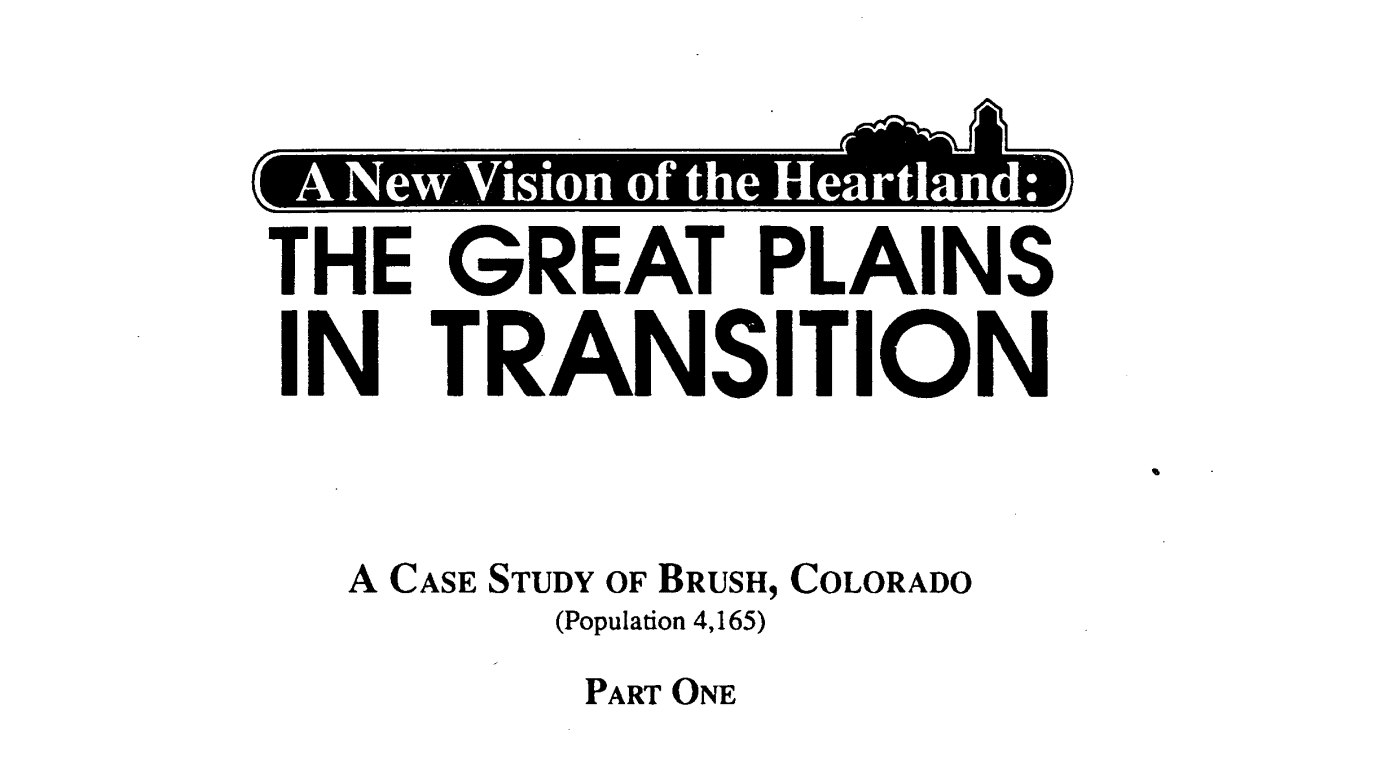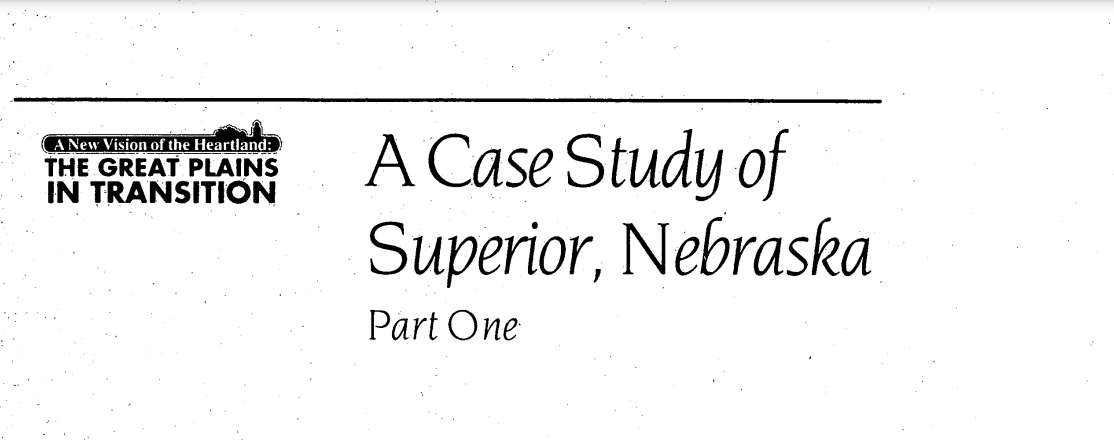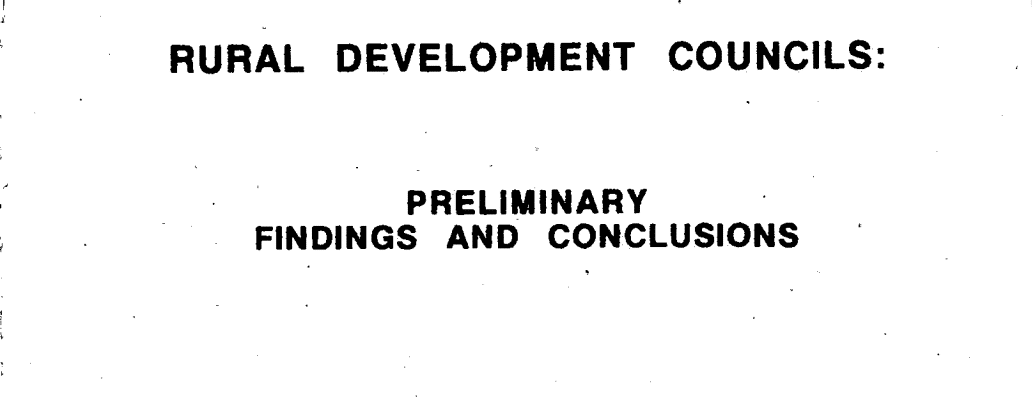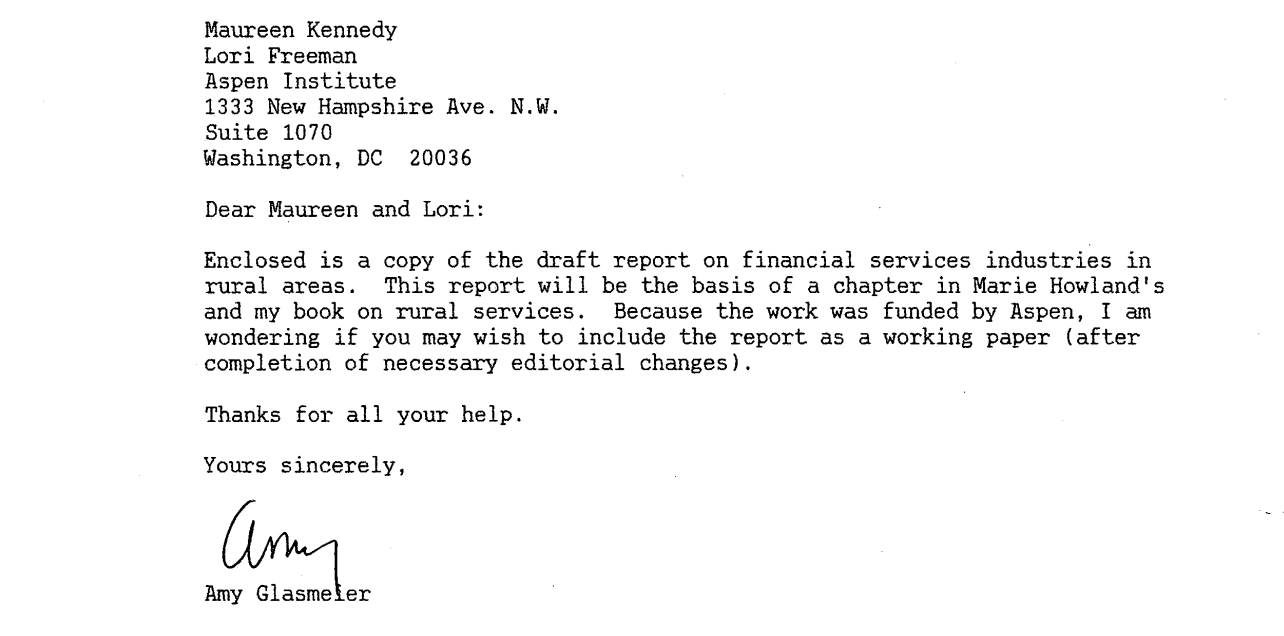Building Regional Strength: A Call to Action
Insights and recommendations to build healthy, thriving rural & Indigenous regions.
Rural Resources, Insights, and Collaborations by Aspen CSG and Partners
Insights and recommendations to build healthy, thriving rural & Indigenous regions.


Paper examines the economic changes at work in the Great Plains.

Document serves an interim report of Phase 1 of the Great Plains Project.

Paper provides insights from 50 collected interviews with rural development administrators and practitioners in Texas.

This book provides overview of small to medium enterprises within the context of "third-wave" state economic development policy.

This book provides insight into successful development finance strategies, focusing on Linked deposit programs, loan guarantee and loan insurance programs, and business and industrial development corporations.

This report examines challenges facing Great Plains communities and presents strategies for success, based on interviews with local leaders and practitioners.

This study seeks to examine common economic revitalization assumptions against the actual experience of the people living in the communities where some new applications of telecommunications services are based.

Case study examines communities in transition in order to understand health community success in small towns across the Midwest.

Report reflects the experience of the eight Rural Development Councils initiated as part of the Federal Rural Initiative that provides a baseline of information on the organization and early development of the effort.

Draft report seeks to analyze effect of technological innovation and deregulation on financial services industries in rural areas.

Contains eight state case studies that have been developed to track the development of the federal-state initiative.

Report produces a series of policy proposals designed to address the shortcomings and comparative disadvantages of rural Southern economic development.